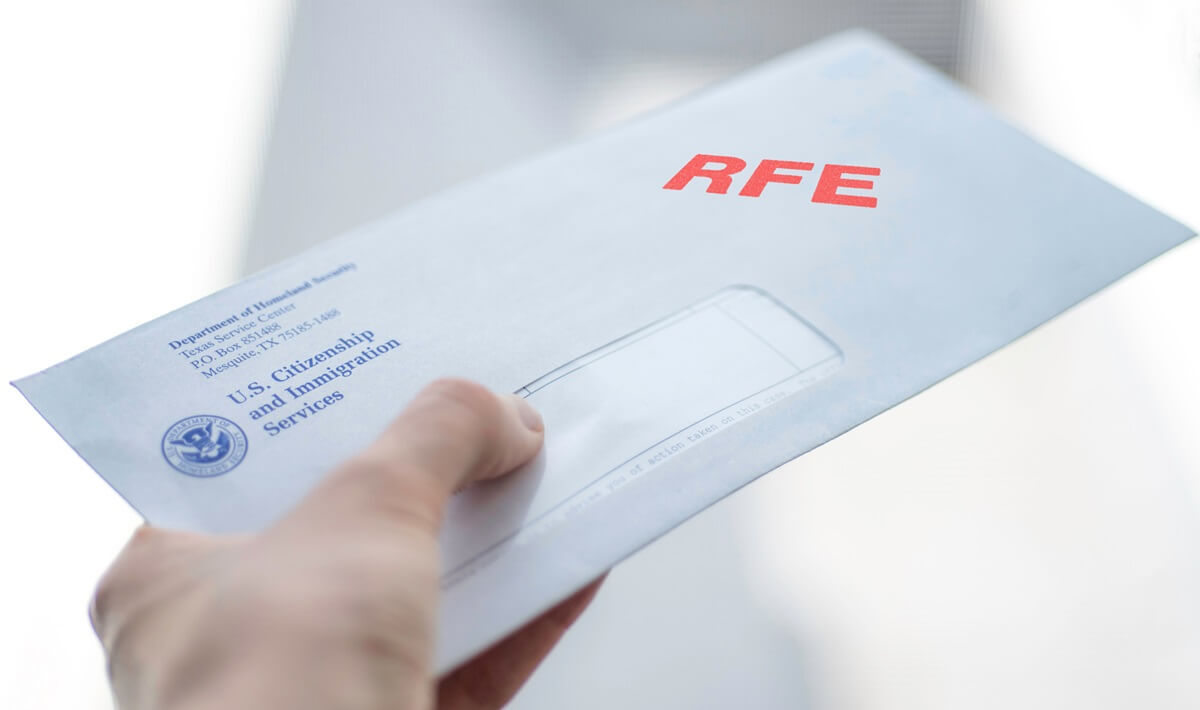
If you're preparing for your green card interview through adjustment of status, you're likely feeling nervous. You're not alone. Interviews have become more common and more rigorous recently, following policy shifts introduced during the Trump administration. U.S. Citizenship and Immigration Services (USCIS) now interviews nearly all applicants to verify eligibility and detect fraud. But don’t worry — being prepared makes all the difference. This article gives you a detailed adjustment of status interview checklist, explains what to expect, and shares practical tips to help you succeed.
Why Interviews Are More Common Now
Historically, USCIS waived interviews for certain cases if they were straightforward. That changed under the Trump administration. Their policies have increased vetting across the board. Today, spouse-based applicants should always expect an interview. Even employment-based and refugee/asylee adjustment applicants are often required to attend interviews. Therefore, it’s wise to prepare thoroughly.
Who Must Attend Adjustment of Status Interview
In many cases, USCIS requires both the applicant and petitioner to attend the adjustment of status interview. This is most common in cases when the petitioner is a spouse but is possible for other categories as well. USCIS does not require employers to attend interviews for employment-based I-485 applications.
USCIS will generally schedule the interview appointment at the office nearest you. If you don’t live within a couple hours’ drive from an office, this may require a long drive and an overnight stay.
Take a Competent Interpreter
An applicant who is not fluent in English may use an interpreter for the adjustment interview. An interpreter, who can proficiently translate between English and your native language, can help facilitate the interview. You’ll understand the questions better and be able to more accurately answer them.
Misunderstandings Can Lead to Denials
Some applicants error by not bringing an interpreter when they should. If you do not speak English reasonably well, confusion can lead to suspicion and denial. If you do not understand the USCIS officer or the officer does not understand your answers, it may appear that you are being dishonest or trying to hide information. The language barrier could lead to a denial.
Interpreter Qualifications
Generally, you should not use a friend or family member as an interpreter. The individual should be a “disinterested” third party. The interpreter needs to take a valid, government-issued identity document and translate what the officer and the applicant say word-for-word to the best of their ability without adding the interpreter’s own opinion, commentary, or answer.
The USCIS officer may disqualify an interpreter if the officer believes the integrity of the examination is compromised by the interpreter’s participation or the officer determines the interpreter is not competent to translate. For example, if the applicant’s sister is the interpreter or the officer is already fluent in the applicant’s native language, the officer may excuse the interpreter.
What to Take to Interview
The USCIS appointment notice will also include an adjustment of status interview checklist of items to take to your appointment. Always take the items listed in your appointment notice, but the list below will help you get prepared. You should expect to take the following items:
- A government-issued photo ID. Typically your passport (even if expired) but can also be any other government-issued photo ID like a driver’s license;
- Appointment notice (I-797C, Notice of Action) for your I-485 interview;
- A complete copy of your adjustment of status application package. In addition to Form I-485, have available any other forms (e.g. I-130, I-130A, I-864, I-131, I-765) you may have submitted;
- Originals of any supporting documents that you submitted to USCIS with the adjustment of status application. Especially important examples include birth, marriage and death certificates as well as divorce decrees (if applicable);
- Your passport (unless you are in certain categories such as refugee/asylum);
- Any other travel documents, for example your advance parole permit if you traveled while awaiting your interview;
- If applying based on employment, an up-to-date employment verification letter, documenting continued employment at a specified salary; and
- If applying based on marriage, copies plus originals of documents proving your bona fide marriage.
Changes in Circumstances
The USCIS officer will likely ask if you have any changes in circumstances that affect the answers on your adjustment of status application. Some examples include the birth a child, new employer, or new address. The officer is looking for any changes that affect your eligibility. Don’t forget to take evidence of these new developments. For example, take a birth certificate for a new child born into the marriage or a marriage certificate if you got married. If your changes include contacts with law enforcement or any immigration problems, speak to an immigration attorney before attending your interview.
Possible Interview Questions
Most adjustment of status interviews last under 30 minutes. After brief introductions and swearing in, there’s limited time for questions, so know your application well and be ready to confirm your answers. Thoroughly read and review all of the questions and your answers on all forms submitted. If you’ve been truthful on Form I-485, there’s little reason to worry. Marriage-based applicants should expect more personal questions as USCIS checks for signs of a genuine relationship.
Sample Adjustment of Status Interview Questions for Spouses
- How, when and where did you meet your spouse?
- Where and with whom did your spouse live when you met your spouse?
- Who lives at your address now?
- What is your spouse’s date of birth?
- Where did your spouse work when you met him/her?
- What type of work does your spouse do?
- What is your spouse’s work schedule?
- How much is spouse’s salary?
- Are both spouses’ salaries deposited into the same bank account?
- What bank account do you use?
- Did your spouse have a car when you met? What model, color, etc?
- Are these the cars you and your spouse current drive?
- If not, when did you and/or your spouse change cars?
- If you now have cars, how much money is owed on them? How much is the monthly payment?
- When did you and your spouse decide to get married? Was there a proposal? Who proposed? When and where did it take place?
- Did you and your spouse live together prior to your marriage? Where and how long?
- When did you and your spouse move in together?
- When did you get married?
- If you had a celebration, what food/beverages were served?
- Did you and your spouse go on a honeymoon? If yes, where?
- Who pays the rent/mortgage? How is it paid? (Do you mail it? Hand-deliver it?)
- Where does your landlord live?
- How many sleeping rooms does your home have?
- Are all the sleeping rooms on the same side of the home?
- What size bed do you and your spouse have?
- Can you describe the pieces of furniture in your bedroom?
This is a small sampling of possible questions. In practice, USCIS may ask a wide variety of questions to help make a determination if you and your spouse have a bona fide marriage.
What Can Be Done to Ensure a Smooth Process
While most applicants must attend an interview, USCIS does have guidelines for waiving interviews in limited cases. The key to qualifying for a waiver — or simply ensuring a hassle-free process — is submitting a complete, well-documented application. Taking certain proactive steps, like providing strong evidence for your application type, can help you avoid delays or complications down the line.
Your best chance to ensure a smooth process is to file an adjustment of status package that has the following characteristics:
Complete
Include all forms and evidence that will be necessary to adjudicate your case. Submit the I-693 medical exam results concurrently with Form I-485. Organize your adjustment package so that it is easy to disassemble and find all items.Accurate and free of inconsistencies
Many forms request some of the same information. Make sure all answers are consistent and truthful. Inconsistent answers will lead to more questions.All supporting documents
Submit all evidence and supporting documentation as required for each form. Many applicants overlook some items and get an RFE. If multiple forms require the same evidence, include it as required for each form.Professional translations
Use a professional to provide your certified translations for any foreign language documents. Although you may provide your own, most people don’t know how to format translated documents in a suitable manner.
Need help making sure you’ve done everything correctly? In addition to your prepared forms, CitizenPath's Adjustment of Status Package provides you with a set of personalized filing instructions. Our custom filing instructions are tailored to your situation and provide detailed directions on supporting documents, how to organize your application, and where to mail it.
After the Interview
If everything goes well at your interview, the USCIS officer will approve your I-485 application. In some cases the officer may be able to place an “ADIT” stamp inside your passport. Regardless, USCIS will process the new green card and mail it to your address on record.
However, not all adjustment of status interviews end with a decision. The USCIS officer may tell you that you will receive a decision in the mail. Don’t be discouraged. This isn’t unusual.
It’s also possible that a USCIS officer cannot approve your case if they require additional evidence. If USCIS requests additional evidence, be certain to submit the documentation requested by the deadline issued.
If it’s been 90 days since your I-485 interview and you still don’t have a decision, call USCIS at 1-800-375-5283 to request an in-person InfoPass appointment. It’s important to follow up.
Under the Trump administration’s stricter policies, most adjustment of status applicants should expect an interview and prepare accordingly. By following this adjustment of status interview checklist and knowing what to expect, you can approach your interview with confidence.
CitizenPath helps thousands of people successfully file their immigration applications with step-by-step guidance and affordable attorney-reviewed forms. We can help you prepare for your interview too. Sign up for our newsletter to get helpful immigration tips delivered to your inbox.
About CitizenPath
CitizenPath provides simple, affordable, step-by-step guidance through USCIS immigration applications. Individuals, attorneys and non-profits use the service on desktop or mobile device to prepare immigration forms accurately, avoiding costly delays. CitizenPath allows users to try the service for free and provides a 100% money-back guarantee that USCIS will approve the application or petition. We provide support for the Adjustment of Status Package (Form I-485), Affidavit of Support Package (Form I-864), and several other USCIS forms.
Want more immigration tips and how-to information for your family?
Sign up for CitizenPath’s FREE immigration newsletter and
SAVE 10%
on our immigration services






